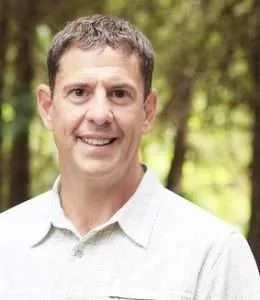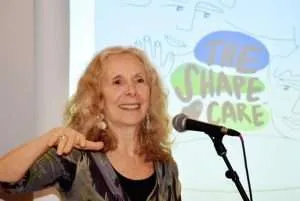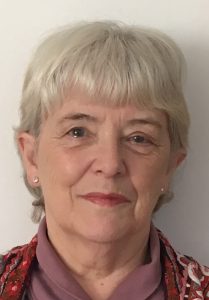Editorial Note:
This profile of Gina M. Finelli, PhD and her work in family business advising is brought to you through a partnership between the Association for Applied and Clinical Sociology (AACS) and Applied Worldwide. Thank you to AACS and all those who made valuable contributions to the Profiles in Applied & Clinical Sociology series.
This profile is presented with the intentions of: 1) providing students with examples of applied sociology, 2) providing market value to sociological skills and services, and 3) promoting the work of individual sociological practitioners and organizations. You can learn more about AACS at AACSnet.net.
Gina M. Finelli, PhD
Gina M. Finelli began her training as a sociologist over three decades ago when she earned her A.B. in Social Science and Sociology from Elon University, graduating with honors. She then went on to earn a M.A. degree in Sociology from the University of South Carolina, writing about social interactions through observations and self-reports of race and sex homophily on a college campus for her thesis.
Most recently she earned her Ph.D. in Sociology from American University in Washington, DC where she reserached the effects on nepotism on family business for her dissertation. Dr. Finelli is also a Family Firm Institute (FFI) Fellow, earning her an advanced certificate in Family Business Advising, FFI.
When we asked Dr. Finelli about her work as an applied sociologist, she told us:
Unfortunately, no “direct” work as an applied sociologist now, but as a professor of sociology at a community college, I indirectly “do applied sociology” on a regular basis (e.g. serving on committees that require expertise in survey construction and analysis for college functions, or providing focus group training for colleagues). However, in the past, I have performed work along with interdisciplinary teams using a variety of quantitative and qualitative methodologies that includes but is not limited to needs assessment, evaluation, instrument design, implementation, and analysis of data collected through self-administered questionnaires, interviews, focus groups, observations, and/or secondary analysis. Some organizations I have completed projects or worked directly for include the National Center for Education Statistics, National Gallery of Art, The Living Classroom Foundation, Anne Arundel County Housing and Urban Development, Northrop Grumman, and the Annapolis Community Partnership. For me, it has always been important to put my knowledge to practice. I also have expertise for consulting in areas of organizational behavior, specifically family businesses, as well as futures methodologies.
Read the full interview with Dr. Finelli below for more insight!
Using Sociology in Practice with Dr. Gina M. Finelli
How do you use sociological research methods or sociological theory in practice?
The responses to these questions really go hand-in-hand – generally, I would say, “how could one NOT use sociological methodology and theory in practice?” This is OUR toolset – and both are necessary in conjunction to collect data, assess needs, and analyze given scenario to be able to provide recommendations to assist clients.
Lessons for Future Practitioners
What types of courses should undergraduate students take in preparation for a career similar to yours?
Introduction to Sociology (necessary to get whole picture and learn the language of the discipline) – the value of this course is often underestimated; if your institution offers a course in Applied Sociology (in lieu of and/or in addition to intro); then any number research methods courses (varies greatly at institutions, but point is to load up on statistic and methodology courses); and then any number of sociological theory courses offered.
What types of courses should graduate students take in preparation for a career similar to yours?
In most sociology graduate programs – half of your required course work is theory and the other half is methodology. So, most graduate programs provide the basis for a career in applied sociology. Policy course work is also advised. I see myself as an applied sociologist who is a generalist because this toolset of methods and theory provide us with tools that can be applied to any given topic or organization. Other disciplines provide similar skill sets – but sociology provides a more broad based skill set, especially in methods, since sociologists tend to use a variety of methodologies (unlike many other disciplines).
What types of experiences should undergraduate students seek in preparation for a career similar to yours?
Any and every opportunity that allows them to be a part of a team conducting research and analysis for an organization.
What types of experiences should graduate students seek in preparation for a career similar to yours?
Again, any and every opportunity that allows them to be a part of a team conducting research and analysis for an organization.
More generally, what are the best outlets to learn more about the work you do as an applied or clinical sociologist?
Association for Applied and Clinical Sociology
What advice do you have for aspiring applied and clinical sociologists?
As all sociologists know, relationships and our social statuses matter, so expand your professional network and cultivate relationships with others in positions that have skill sets/do work that you desire.
What texts or authors can people reference to learn more about the work you do as an applied or clinical sociologist?
- Addams, Jane. 1910 [1998]. Twenty Years at Hull House. New York: Penguin.
- Armstrong, David. 2003, 5d ed. Outline of Sociology as Applied to Medicine. New York: Oxford University Press.
- Bickman, Leonard and Debra J. Rog, ed. 1998. Handbook of Applied Social Research Methods. Thousand Oaks, CA: Sage Publications.
- Birchenall, Mary and Peter. 1998. Sociology Applied to Nursing and Healthcare. Saunders WB Company.
- Cohen, Harry. 1981. Connections: Understanding Social Relationships. Iowa State University Press.
- Dentler, Robert A. 2002. Practicing Sociology: Selected Fields. Westport, CT: Praeger Publishers.
- Deutscher, Irwin. 1999. Making A Difference: The Practice of Sociology. New Brunswick, N.J: Transaction Publishers.
- Du Bois, William D. and R. Dean Wright. 2001. Applying Sociology: Making a Better World. Boston: Allyn and Bacon.
- Eldridge, Seba. 1915. Problems of Community Life: An Outline of Applied Sociology. New York: Thomas Y. Crowell Company.
- Freeman, Howard E., Russell R. Dynes, Peter H. Rossi, and William Foote Whyte, ed. 1983. Applied Sociology: Roles and Activities of Sociologists in Diverse Settings. San Francisco, CA: Jossey-Bass Publishers.
- Fritz, Jan Marie, ed 2001. The Clinical Sociology Resource Book, 5d ed. Sociological Practice Association.
- Iutcovich, Joyce. 2002. “What is Scientifically Based Research?” in Footnotes April.
- —. 2002. “The Role of Science in Policy Debates.” in Footnotes May/June.
- Kennedy, Daniel B. and Bruce Kennedy. 1972. Applied Sociology for Police. Springfield, IL: Charles C. Thomas.
- Krueger, Richard A. and Mary Anne Casey. 2000. Focus Groups: A Practical Guide for Applied Research, 3d ed. Thousand Oaks, CA: Sage Publications.
- Larson, Calvin J. 1993. Pure and Applied Sociological Theory: Problems and Issues. Harcourt Brace College Publishers.
- Monette, Duane R., Thomas J. Sullivan, and Cornell R. DeJong. 1994. Applied Social Research: Tool for the Human Services. Fort Worth, TX: Harcourt Brace College Publishers.
- Olsen, Marvin E. and Michael Micklin, ed. 1981. Handbook of Applied Sociology: Frontiers of Contemporary Research. New York: Praeger Publishers.
- Steele, Stephen F. and Joyce Miller Iutcovich, ed. 1997. Directions in Applied Sociology: Presidential Addresses of the Society for Applied Sociology 1985-1995. Arnold, MD: Society for Applied Sociology.
- Steele, Stephen F., AnneMarie Scarisbrick-Hauser, and William J. Hauser. 1999. Solution-Centered Sociology: Addressing Problems through Applied Sociology. Thousand Oaks, CA: Sage Publications.
- Straus, Roger A. 2002. Using Sociology: An Introduction from the Applied and Clinical Perspectives, 2d ed. Dix Hills, NY: General Hall, Inc.
- Sullivan, Thomas J. 1992. Applied Sociology: Research and Critical Thinking. New York: MacMillan.
- Ward, Lester Frank. 1897. Outlines of Sociology. New York: MacMillian.
- —. 1883. Dynamic Sociology. New York: D. Appleton and Company.
- —. 1893. The Psychic Factors of Civilization. Boston, MA: Ginn & Company.
- —. 1906. Applied Sociology: A Treatise on the Conscious Improvement of Society by Society. Boston, MA: Ginn and Company.
- —. 1925. Pure Sociology; A Treatise on the Origin and Spontaneous Development of Society, 2d ed. New York: MacMillian.
- Ward, Lester Frank, Emily Palmer Cape, and Sarah Emma Simons. 1913. Glimpses of the Cosmos. New York: G. P. Putnam’s Sons.
- Weiss, Carol. 1998. Evaluation, 2d ed. New York: Prentice Hall.
- Yiannakis, Andrew and Susan L. Greendorfer. 1992. Applied Sociology of Sport. Champaign, IL: Human Kinetics Books.
Advertising Disclosure: Some of the links in this article are affiliate links, which means we earn affiliate commission, at zero cost to you, if you click through the link and finalize a purchase.







